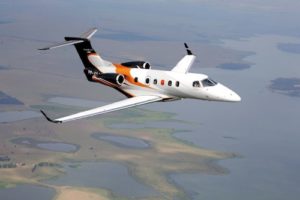- You are here:
- Home »
- Blog »
- non-conventional therapies »
- Patient AirLift Service-PALS
Patient AirLift Service-PALS

“Our patients generally have a financial need or medical situations in which they must avoid public places or are too fragile to endure long waits at commercial airports…”
One of the more interesting aspects of cancer coaching is learning about and coming in contact with services such as the Patient AirLift Service (PALS). I have written repeatedly about the value of meeting with a specialist for your type of cancer. Or perhaps enrolling in a clinic trial. This may be easier said than done.
The specialist/clinical trial you may want to see may practice one or more states away. Or I can recommend PALS to a cancer survivor with a compromised immune system who shouldn’t really travel through a large airport and sit on a commercial plane.
I am both a cancer survivor and cancer coach. Have you been diagnosed with cancer? If so, what type? What stage and/or symptoms? Please scroll down the page, post a question or comment and I will reply to you ASAP.
Thank you,
David Emerson
- Cancer Survivor
- Cancer Coach
- Director PeopleBeatingCancer
Recommended Reading:
David Emerson: Multiple Myeloma Survivor Since 3/94
5 Of The Highest Paying Medical Positions In 2018
Patient AirLift Services (PALS) is a 503c3 non profit that arranges FREE air transportation for individuals for diagnosis, treatment and follow up care at medical facilities a distance from their home. Our patients generally have a financial need or medical situations in which they must avoid public places or are too fragile to endure long waits at commercial airports. Our primary area of geographic coverage is the entire northeast and down the eastern seaboard.
Patients’ Frequently Asked Questions
How much does a medical flight cost?
PALS arranges free air transportation services for people in need. PALS volunteer pilots bear all costs of each medical flight, including fuel, oil, landing fees, ramp fees and other expenses. Patients are not responsible for any air transportation costs.
However, patients must arrange for and pay for local ground transportation at both destination and departure locations, unless PALS specifically provides otherwise.
Do you only fly in/out of large commercial airports?
PALS arranges flights in/out of both major international airports and smaller regional airports.
How do I qualify for a free medical flight with PALS?
The majority of individuals who qualify for PALS air transportation are receiving medical care for acute or chronic healthcare conditions. Often, they cannot afford commercial or charter flights due to the cost of treatment and turn to PALS after exhausting all other options. Learn more.
Does PALS provide air transportation for non-medical reasons?
Compassion flights are accepted on a case-by-case basis. Passengers with a financial need may request air transportation to be with someone undergoing medical treatment or to attend an illness-specific camp.
What about traveling to funerals?
No, as a matter of policy, PALS does not fly individuals to funerals.
Is there a limit to the number of flights I can request?
PALS will arrange free medical flights as often as you need and support you until you no longer require our services.
How can I arrange a PALS flight?
First, request a flight. Required information includes:
- Patient: Name, date of birth, weight, height, address, email, phone numbers, medical condition.
- Doctor: Name, address, phone and fax numbers, email address and contact person.
- Medical Facility: Name, address, phone numbers, contact person and appointment date(s).
- Other Passenger/s: Name(s), contact number, email, weight, height.
- Emergency Contact: Name, phone number, email.
The PALS mission team then reviews your criteria and eligibility. If all requirements are met, a Mission Coordinator works with you directly to arrange all aspects of the medical flight. Passengers are responsible for providing accurate information to the mission coordinator and pilot.
How long do PALS medical flights normally take?
Typical flight times in our general aviation aircraft range from one to three hours per leg, covering from 200 miles to 600 miles.
Do I need to sign a waiver?
Yes, passengers using PALS volunteer flight services must sign a waiver and release of liability form. A physician or social worker must also provide a signed medical release form declaring you able to fly in general aviation aircraft. A PALS mission coordinator can explain the forms in detail and answer questions.
What types of planes are used for PALS medical flights?
PALS volunteer pilots own and fly a range of general aviation aircraft. Most of the airplanes are unpressurized and seat four to six people, including the pilot. Some of our medical flights are in “low wing” aircraft, which require passengers step onto a portion of the wing as they board.
How soon can I arrange a volunteer medical flight?
PALS requires a minimum of five business days to arrange volunteer air transportation. On rare and exceptional occasions, medical flights are arranged on short notice.
What are the physical requirements for a PALS flight?
Passengers must be ambulatory and able to sit upright in an aircraft seat and wear a seatbelt. They must be able to get in and out of the plane with limited assistance and be under the aircraft’s weight restrictions.
Children two and older must be restrained in an approved aircraft seat or child restraint.
What happens if my medical flight is cancelled?
Patients using PALS volunteer flight services must be able to reschedule or cancel a medical appointment, or have alternative transportation arrangements, in case of flight cancellation due to weather, pilot need, or other circumstances.
What are the in-flight rules?
Passengers are also responsible for obeying instructions of the pilot. He or she is in charge of and ultimately responsible for conduct of the flight. In flight, please be mindful of the relatively small quarters. Basic snacks and drinks are permissible but try to avoid spills and messes. There is no smoking permitted during flight.
Passengers have a right to courtesy, respect and privacy at all times. PALS pilots always strive to provide a comfortable, on-schedule flight.
What about luggage and personal belongings?
PALS medical flights have a baggage limit of 25 lbs. per person. Luggage should be soft sided, so no suitcases or metal frames. Strollers, walkers, and wheelchairs must be collapsible. All medical equipment must be declared with weight recorded prior to takeoff. Oversized luggage and adult wheelchairs cannot fit in a small aircraft,


